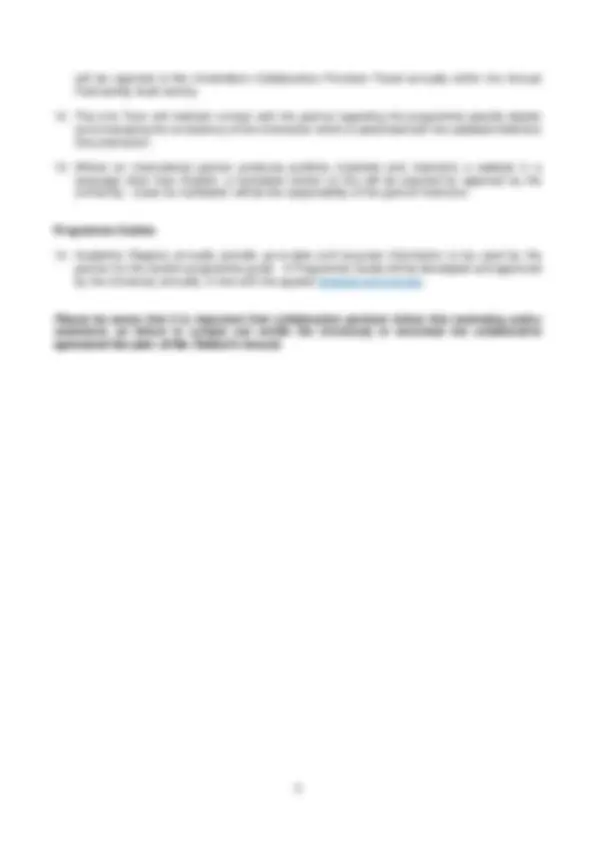



Study with the several resources on Docsity

Earn points by helping other students or get them with a premium plan


Prepare for your exams
Study with the several resources on Docsity

Earn points to download
Earn points by helping other students or get them with a premium plan
Community
Ask the community for help and clear up your study doubts
Discover the best universities in your country according to Docsity users
Free resources
Download our free guides on studying techniques, anxiety management strategies, and thesis advice from Docsity tutors
The expectations of liverpool john moores university (ljmu) regarding public information produced by collaborative partners in relation to programmes validated by the university. The guidelines cover both printed and electronic media, and emphasize the importance of accuracy, consistency, and transparency in marketing materials. The document also provides instructions on how to seek approval for advertising programmes prior to a signed collaborative contract, and the consequences of non-compliance.
Typology: Lecture notes
1 / 3

This page cannot be seen from the preview
Don't miss anything!


When advertising a University programme or award prior to a signed collaborative contract being in place, as “subject to approval, or validation or contract”, following specific approval by the University to do so (please see details below), it should be prominent and clear that the programme is not yet approved and is ‘subject to approval/validation’. Ensure that the information about student fees is clear, stating how much a student will pay, and who the payment should be made out to. In a collaborative arrangement in which the collaborative contract outlines that the partner pays the University and the student pays the partner, it should be clear on all public information, and documentation that a student has access to, that the student’s financial arrangement is with the partner and NOT with the University. Don’ts X Advertise or signpost a University award or make statements or imply any formal relationship with the University until a signed collaborative contract is in place, unless the required approval by the University to do so is in place. X Advertise a University programme or award as “subject to approval, or validation or contract”, without specific approval by the University to do so (please see ‘Advertising a Programme Prior to Contract section below). X Produce any information (either publically or within the partner organisation) which gives the impression of a financial arrangement between the student and the University, when the financial arrangement is between the student and the partner. Advertising a Programme Prior to Contract